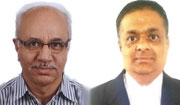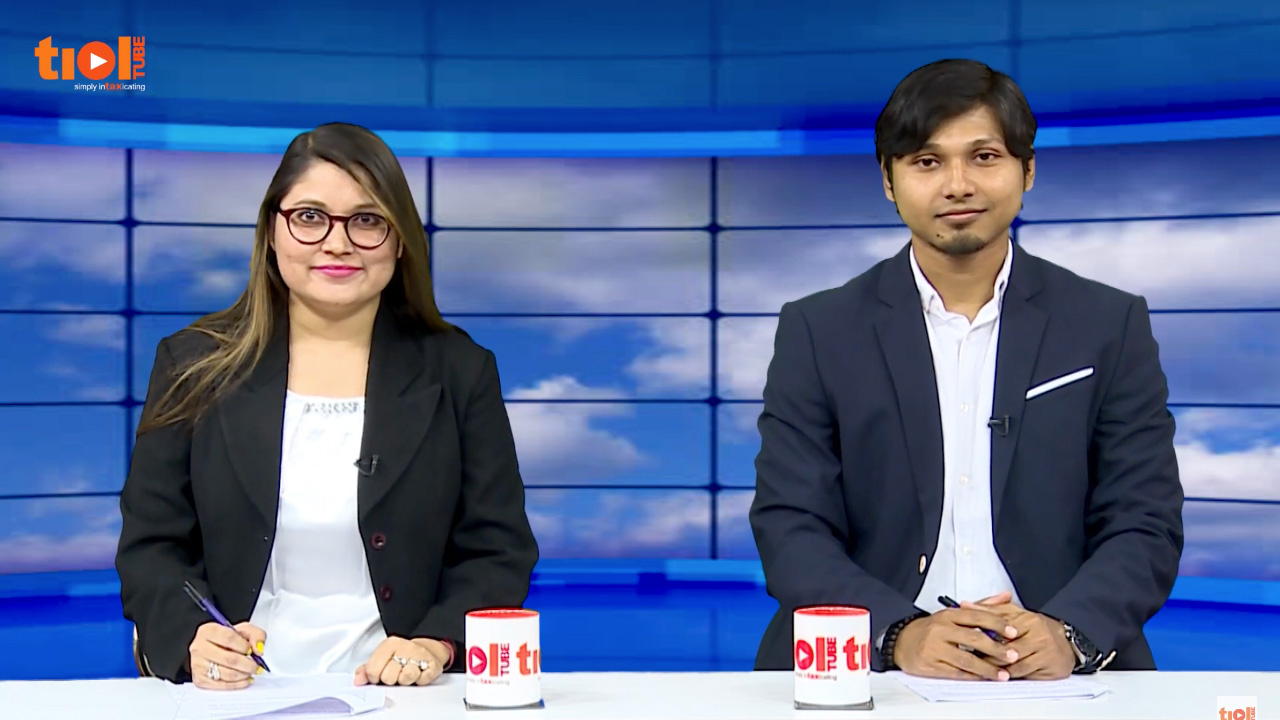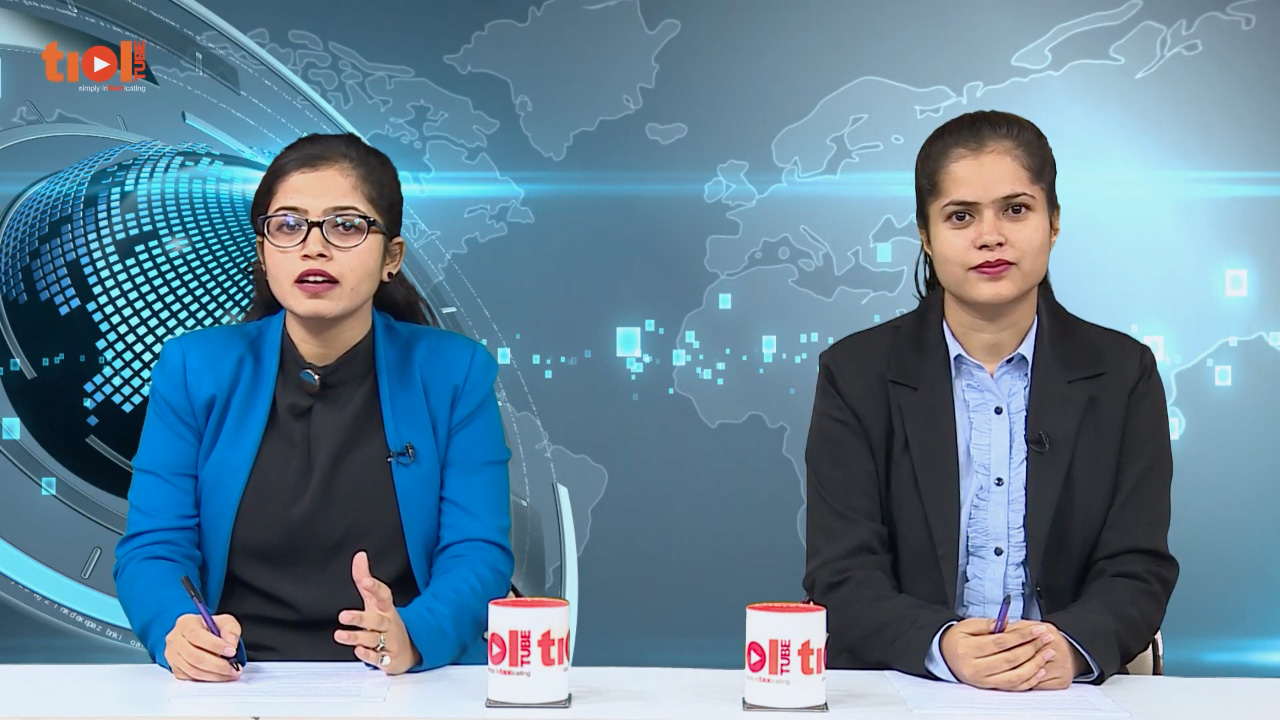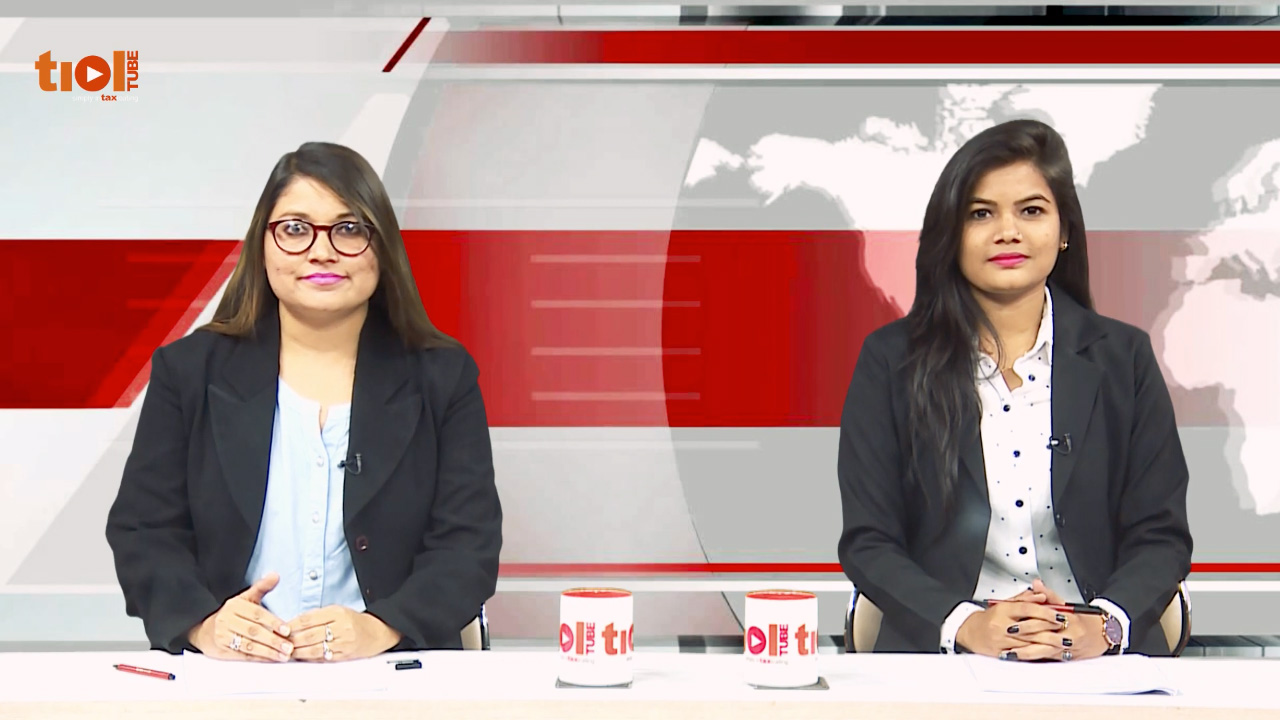|
SERVICE TAX
2019-TIOL-2432-HC-P&H-ST
Balaji Manpower Services Vs UoI
ST - The petitioner declared lesser value of service in service tax returns than value shown in the balance sheet and 26AS Forms - The Respondent considered value shown in 26AS Forms as "cum tax value" and compared with value shown in balance sheet - The Petitioner submitted sample invoices and certificate of Chartered Accountant certifying that invoices were inclusive of service tax - The Settlement Commission found that Petitioner is entitled to cum tax benefit, however declined to grant relief - A Division Bench of this Court in the case of Idea Cellular Ltd. - 2017-TIOL-1054-HC-P&H-ST dismissed the appeal of revenue which was filed against order of Tribunal, who had held that party has not collected any service tax from the Sim Card subscribers, thus value of sim cards sold to the subscribers shall be deemed to be cum tax price - Division bench of Tribunal in case of Raj Catering Services - 2016-TIOL-960-CESTAT-MUM while confirming demand of service tax extended benefit of cum tax value as department calculated service tax on gross amount charged by appellant - The Settlement Commission has further noted that tax was collected but not deposited - The gross value was shown in the balance sheet as well Form 26AS - There seems no reason to deny benefit of cum tax value in view of the fact that price appearing in 26AS Forms was admittedly cum tax price and as per judgments cited by Petitioner gross value is considered as cum tax - The Settlement Commission has found that tax was collected but not deposited but there is nothing on record to show that tax was collected over and above value appearing in balance sheet rather value appearing in 26AS Form has been considered as cum tax price - Thus, no reason found to deny benefit of cum tax value - Respondent is directed to calculate liability after granting benefit of cum tax value: HC
- Petition allowed: PUNJAB AND HARYANA HIGH COURT
2019-TIOL-3052-CESTAT-HYD
Broadbridge Financial Solutions India Pvt Ltd Vs CCT
ST - The assessee, a 100% EOU registered under STPI Scheme - They are engaged in software development and information technology enabled services which they provide to their associated enterprises located outside India - They filed refund claims under Rule 5 of CCR, 2004 seeking refund of CENVAT credit used in output services relatable to their export of services - These refund claims were partly allowed and partly rejected - The assessee is contesting only two types of services which were denied to them viz; General Insurance Service and Works Contract Service - In respect of invoice issued by ICICI Lombard General Insurance Company Ltd., assessee submits that the insurance is not for benefit of any individual employee but it is an insurance for the Directors and their Officers against any liability which they may incur during the course of their official work - Therefore, respectfully concurring with the decision of CESTAT in the case of Ernst and Young Associates - 2017-TIOL-4394-CESTAT-CHD, assessee is entitled for benefit of CENVAT credit under Rule 2(l) and consequently refund under Rule 5 of CCR, 2004 in respect of this invoice - As regards to Invoices issued by Iffco Tokio general insurance, these invoices provide medical insurance for the employees and their families - There are various services such as outdoor catering, beauty treatment, health services including travel benefits extended to employees on vacation such as leave or Home travel concession are excluded as such services are used primarily for personal use or consumption by any employee - It does not appear that all the services listed in clause have to be relatable to employees being on vacation such as Leave or Home Travel Concession - It is inconceivable that the company provides outdoor catering to an employee who is on leave or home travel concession - Similarly, it is absurd to say that the company may be providing beauty treatment or health services or plastic surgery or membership of a club, health and fitness centres, while the employee is in vacation or Home travel concession - For this reason, each of these expressions in this clause have to be read by themselves and travel benefits extended to employees on vacation such as leave or Home travel concession is one of the excluded categories - Other categories such as beauty treatment or health services or plastic surgery are not linked to the employee being on vacation - The health insurance services have been clearly excluded from Rule 2(l) of CCR, 2004 - Accordingly, assessee is not entitled to the benefit of CENVAT credit on the invoices issued by M/s IFFCO-TOKIO towards health insurance - As regards to invoice issued by M/s TATA AIG General Insurance Company Limited, a perusal of these invoices clearly shows that no individual has been made the beneficiary in this invoice - It is a commercial liability insurance meant for company itself - Therefore, this is clearly not excluded under clause 'C' of Rule 2(l) - Assessee is entitled for CENVAT Credit on invoice issued by M/s TATA AIG General Insurance Company Limited - As regards to invoices issued by New Vision Interiors for works contract services, it is undisputed that all these invoices pertain to Works Contract Services - On going through the invoices submitted by assessee, it is evident that all these are "Works contracts" and they pertain to several activities such as scaffolding for replacement of facade glass of out gate area, fixing of toughen glass - Therefore, they are clearly excluded in definition of 'input services' under Rule 2(l) - Therefore, assessee is not entitled to CENVAT Credit on these services: CESTAT
- Appeals partly allowed: HYDERABAD CESTAT
2019-TIOL-3051-CESTAT-HYD
Incnut Digital Pvt Ltd Vs CCT
ST - The assessee, an exporter of services, filed an application for refund of accumulated CENVAT Credit under Rule 5 of CCR, 2004, r/w Notfn 27/2012-CE(NT) - Same was partly sanctioned and partly rejected on the ground that the refund application was filed beyond the time limit of one year specified under said Notfn - The claim has been filed for the period October 2016 to December 2016 - According to assessee, the first payment was received on 25.11.2016 and the refund claim was filed on 31.10.2017, which squarely places the application for refund within the normal period of limitation and hence the assessee's appeal needs to be allowed - For the sole purpose of factual verification of dates and decision in terms of said notfn as amended by Notfn 14/2016-CE(NT) the matter is remanded to the original authority - The appeal is allowed by way of remand to the original authority: CESTAT
- Matter remanded: HYDERABAD CESTAT
2019-TIOL-3050-CESTAT-CHD
Genpact India Pvt Ltd Vs CCGST
ST - The assessee is in appeal against impugned order wherein the refund claim under Rule 5 of CCR, 2004 has been denied on the ground that the services are not input services in terms of Rule 2(l) of CCR, 2004 - Considering the fact that it was not disputed that at the time of availment of credit on the services in question, therefore, at the time of filing refund claim, it cannot be disputed that credit lying unutilized are not input services in terms of Rule 2 (l) of CCR, 2004 in the light of decision of Tribunal in case of Verisign Services India - 2018-TIOL-1473-CESTAT-BANG - Refund claim cannot be denied merely on the premise that services in question on which Cenvat credit remained unutilized in Cenvat credit are not Input Services: CESTAT
- Appeal allowed: CHANDIGARH CESTAT
CENTRAL EXCISE
2019-TIOL-3049-CESTAT-ALL
Amber Enterprises India Pvt Ltd Vs CCE
CX - The assessee was engaged in manufacture of sheet metal components - They were also doing job work for one of their principal manufacturers M/s Indo Simon Electric Private Ltd. situated in the state of Uttarakhand in terms of Notfn 50 of 2003 - The said principal manufacturer was availing the benefit of area based exemption notification - Revenue entertained a view that the assessee's activity amounted to manufacture - Further, the benefit of job work was not extended to assessee on the ground that principal manufacturer was exempted in terms of area based exemption notification and was not paying any duty of excise - There was a finding in favour of assessee by Original Adjudicating Authority as regards admissibility of cenvat credit which finding was not challenged by Revenue, even though the Assistant Commissioner did not extended the benefit and did not calculated the value of demand by neutralizing the same against the cenvat credit - In such a scenario, it was not justifiable on the part of Commissioner (A) to deny the cenvat credit to assessee on the ground of invoices being more than six months old - Otherwise also, the claim to credit is being made by assessee only when the demand of duty of excise is sought to be confirmed against them - The provisions of Rule 4 of Cenvat Credit Rules laying down the maximum time limitation of Six Months for claiming the credit would not be applicable - The demand now being confirmed against assessee is required to be neutralized against the cenvat credit available to them for which they will produce documentary evidence - The major part of the demand is barred by limitation - Inasmuch as assessee was paying service tax on same activity and were filing ST-3 Returns, there was due knowledge on the part of Revenue and no mala fide can be attributed to assessee so as to invoke the longer period - Matter is remanded to Original Adjudicating Authority to re-quantify the duty falling within the normal period of limitation and after extending the benefit of cenvat credit of duty paid on inputs, as also by taking into account the service tax paid by assessee in respect of same activities during relevant normal period - The same would also be adjusted against the demand of excise - The penalty imposed upon them is set aside in toto: CESTAT
- Matter remanded: ALLAHABAD CESTAT
2019-TIOL-3048-CESTAT-ALL
Nidhi Auto Pvt Ltd Vs CCE
CX - M/s Nidhi Auto were engaged in manufacture of Sheet Metal components used for manufacture of Air conditioners, Refrigerators and Washing Machine and supplied the same to M/s L.G. Electronics Pvt. Ltd. and to vendors of M/s L.G. Electroncis Pvt. Ltd. - Assessee was procuring the inputs from registered dealer M/s Ruby Steels - The simultaneously searches were conducted at factory premises of M/s Nidhi Auto, Residential premises of Shri Sanjay Agarwal and Shri Sanjeev Agarwal, partners of M/s Ruby Steels - It appeared to revenue that M/s Nidhi Auto was engaged in fraudulent availment of Cenvat credit without receipt of goods only on the basis of invoices issued by M/s Ruby Steels and entered into ledger account at Sl. No.70 - The Original Adjudicating Authority has basically relied on few statements recorded and two ledgers maintained by M/s Nidhi Auto and one diary recovered from the residence of partner of M/s Ruby Steels and transport details for five months provided by Shri Arun Jain and he has accepted all the evidences relied upon for issue of SCN without examining the contentions of assessee which were submitted before him before passing the impugned O-I-O - Cross examination of none of the prosecution witnesses were allowed - Therefore, following the ruling by Allahabad High Court in Parmarth Iron Pvt. Ltd., none of the statements were admissible evidence - The author of the diary recovered at the residence of the partner of M/s Ruby Steels was not identified and his statement was not recorded and therefore, the diary recovered was not admissible evidence - Further, it was alleged that M/s Nidhi Auto was maintaining parallel ledgers whereas it is found that M/s Nidhi Auto was maintaining two ledgers which was in the regular course of business and that the goods entered were tallying with the total quantity received by them in both the ledgers put together - Further, revenue could not exhibit any discrepancy of total inputs reflected in two ledgers put together with entries of inputs in RG-23 records - Revenue has not investigated as to if 9112.500 MT of quantity of inputs shown in the books of account of M/s Ruby Steels were not delivered to M/s Nidhi Auto and only invoices were given then where did such huge quantity of inputs gone and to whom and who was the transporter - Further, revenue also did not investigate as to if 9112.500 MT of inputs were not received by M/s Nidhi Auto then from where M/s Nidhi Auto has procured inputs for manufacture of goods which were cleared on payment of duty - The impugned order is not sustainable: CESTAT
- Appeals allowed: ALLAHABAD CESTAT
2019-TIOL-3047-CESTAT-DEL
Sun Pharmaceutical Industries Ltd Vs CCGST & CE
CX - The assessee is engaged in manufacture of pharmaceuticals - They had the Annual Maintenance Contracts for various work as that of Renovation, Maintenance, Repair, Fabrication, Dismantling, Commissioning and Erection - They claimed the cenvat credit under Rule 2(l) of CCR, 2004 - These rules stand amended w.e.f. 01.04.2011 wherein an exclusion clause has been inserted - Relying thereupon the credit has been denied by the Department - The Commissioner vide the impugned Order has also meticulously examined the Annual Maintenance Contracts - Perusal thereof shows that whatever fabrication and erection, if mentioned in any of the contract, it is subsequent to dismantling and the remaining contracts are specifically for repair and maintenance - This observation is sufficient to hold that the impugned Fabrication, Commissioning and Erections are with respect to already existing structure in assessee’s premises i.e. with respect to Renovation, Repair, Maintenance or Modernisation thereof which is very much inclusive in the definition of input services - Though Commissioner (A) has reflected his doubt in impugned Order about fabrication work to be done whether for making the structures of support of capital goods or not but in view of the verification report by the Jurisdictional Range Officer and in view of the exercise being done by the Commissioner himself, as it is already observed that there remains no reason for the noticed confusion - Otherwise also, Commissioner has not specified as to what fabrication and erection amounts to support of capital goods - The demand cannot be confirmed on the basis of the conjunctions and surmises - Findings of Commissioner (A) are, therefore, held to be unreasonable and without any reasoning and thus are hereby set aside - However, as far as the confirmation of demand with respect to the cenvat credit availed on the fabrication/ dismantling amounting to civil works as was availed in the period April 2011 to May 2011, Tribunal do not find which is the subject matter of SCN dated 02.09.2011 - No infirmity found in the Order to that extent - The Commissioner is observed to have created a right bifurcation of the fabrication/dismantling work with respect to civil structure/ support structure and with respect to the repair, maintenance - Hence, the cenvat credit availed on the fabrication/dismantling qua the civil work, the denial thereof is confirmed - The denial with respect to remaining cenvat credit is hereby set aside: CESTAT
- Appeal partly allowed: NEW DELHI CESTAT
CUSTOMS
2019-TIOL-3046-CESTAT-MUM
Microqual Techno Pvt Ltd Vs CC
Cus - Assessee had filed bill of entry claiming the benefits of notfn 64/2008-Cus against license permitting duty saved of Rs. 6,68,93,756.44 on import of machinery in accordance with EPCG scheme in Foreign Trade Policy, for clearance of 'spares' valued at Rs. 25,94,376 which was provisionally assessed on payment of duty of Rs. 80,166 as per the notification supra - The consignment, said to comprise 44 items, was, on suspicion aroused by reference to various other invoices of same supplier in the documents accompanying the consignment, subjected to examination and found to include 179 items in addition - The undeclared 'spares' were seized and provisionally released on discharging duty of Rs. 9,33,282 without the benefit of notfn 64/2008-Cus on assessable value of Rs. 32,58,755 - In the impugned proceedings, the benefit of notification on the declared 'spares' was also denied for demanding duty thereon - The unutilised component of 'transfer release advice' of Rs. 9,88,063 has not been made available to the assessee in consequence of findings in impugned order that 'additional fee to cover excess imports effected' against the discretionary enhancement, as laid down in Handbook of Procedures, has not been complied with - If that be so, the denial of the adjustment of 'duty saved' against the impugned goods-declared and undeclared would be tenable - However, the assessee has placed on record that the maximum fee mandated in the Policy has already been deposited; accordingly, the provisions in paragraph 5.10 of Handbook of Procedures is rendered inoperable - In the circumstances, only the undeclared goods valued at Rs. 32,58,755 are liable to confiscation under section 111 of Customs Act, 1962 - Therefore, the fine for redemption is reduced to Rs. 3,00,000 - The interest of justice will be served by limiting the penalty under section 112 of Customs Act, 1962 to Rs. 10,00,00 - The direction in paragraph 44D of the impugned order shall be complied with by the competent authority in accordance with our modifications to the applicability of the 'transfer release advice': CESTAT
- Appeal disposed of: MUMBAI CESTAT
2019-TIOL-3045-CESTAT-AHM
Mahima Trading And Investment Pvt Ltd Vs CC
Cus - The assessee-company manufactures Shoe Polish, Tooth paste, nail polish, shaving cream, detergent cake & powder, acid slarry, scouring powder and laundry soap falling under Chapter numbers 3405.10, 3306.00,3304.00, 3302.90, 3405.40 and 3401.10 respectively - Such goods were exported through various merchant exporters - Such exports were affected under the Duty Exemption Entitlement Certificate Scheme - Based on intelligence input, officers of the Preventive unit visited the assessee's factory and seized many documents, the perusal of which revealed that the assessee reflected purchase of raw materials used in manufacture of final products - Such inputs had been purchased from various entities - Such raw materials were shown to be brought into the assessee's factory through lorries, but checking of the vehicle numbers revealed such vehicles to be auto rickshaws and passenger buses and motorcycles, amongst an assortment of other vehicles - Many of these vehicles had been transferred outside the State and their original numbers were non-existent - Enquiry with RTO revealed that such registration numbers were not of trucks and could not carry the weight as shown in delivery challans - Further, investigation of suppliers revealed that some firms were non-existent at their stated address - Pursuant to such investigations, the Revenue entertained a belief that the transactions were bogus and that there had been no procurement or manufacture by the assessee-company - Hence the Revenue claimed that the raw material shown to have been purchased from the assessee were not genuine purchases and that no raw material was actually received - It was also alleged that the clearances for export made by the assessee were not goods declared in the export documents and that on account of such fraudulent exports, DEEC benefit was not available to the assessee - SCN was issued proposing duty demand recoverable jointly from the assessee and another entity along with penalty - Penalties were also imposed on the directors of the assessee-company - On adjudication, the duty demand was confirmed with interest and penalties were imposed on the proprietors of the supplier companies - Corresponding penalty u/s 114 of the Act was also imposed - Hence the present appeals.
Held - The Revenue heavily relied on the discrepancies found at the raw material supplier's end to conclude that the entire manufacture, clearance and export are bogus - Even if it is assumed that there were some discrepancies or manipulation at the supplier's end, that itself would not establish that the assessee had not manufactured the finished goods since the goods were cleared physically from the assessee's factory - The O-i-O was silent on as to how the goods were cleared from the factory, from where they were procured and the source of the procurement - This remains to be investigated - The entire case hangs on the investigation made from six suppliers, three of whom claim to have supplied goods to the assessee - The assessee also purchased raw materials from other suppliers and the huge quantity of raw material was purchased from various suppliers and the same was recorded in the assessee's records - The adjudicating authority did not discuss receipt of raw materials - As there is no dispute about the physical stuffing of the goods in the containers in the presence of the Revenue officer, it cannot be imagined as to how such a huge quantity of finished goods which were cleared from the assessee's factory were not manufactured in the assessee's factory - The question arises as to from where such a huge quantity of finished goods which were exported, had come to the assessee's factory - There is no investigation not any finding of the adjudicating authority - Though there is some discrepancy on part of a few suppliers, the same is insufficient to make such an exaggerated or serious charge, cleared under physical supervision of Central Excise officers from the factory, were not manufactured by the assessees, more so when the Revenue failed to establish the source of these goods - Hence the goods cleared from the assessee's factory were indeed manufactured in their factory - Moreover, the goods were cleared under sealed containers with AR4A to the merchant exporters and such goods were exported by filing shipping bills at the port of export - The use of advance licenses by the merchant exporters is absolutely in order and as per law - Hence no charge is attributed against the merchant exporters - Without bringing on record any detail of import, the duty demand was raised from the merchant exporter, which is incorrect and illegal - Regarding export obligations, no dispute was raised by the DGFT - Hence the Customs authority has no obligation to raise disputes - It is trite law that if there are discrepancies in advance license, the duty cannot be demanded from exporters but from importers, upon finding any illegality on the latters' part - Huge duty demand was raised from the merchant exporters and penalties were imposed on them without material on record that they indulged in any mala fide act or collusion - No statements were taken from them - The proceedings were initiated against them behind their back - If no statements were recorded from them, no allegation of connivance or collusion between manufacturers and merchant exporters can be alleged - Hence the proceedings lack any basis & the duty demand and penalty are unsustainable: CESTAT
- Assessees' appeals allowed: AHMEDABAD CESTAT
| |



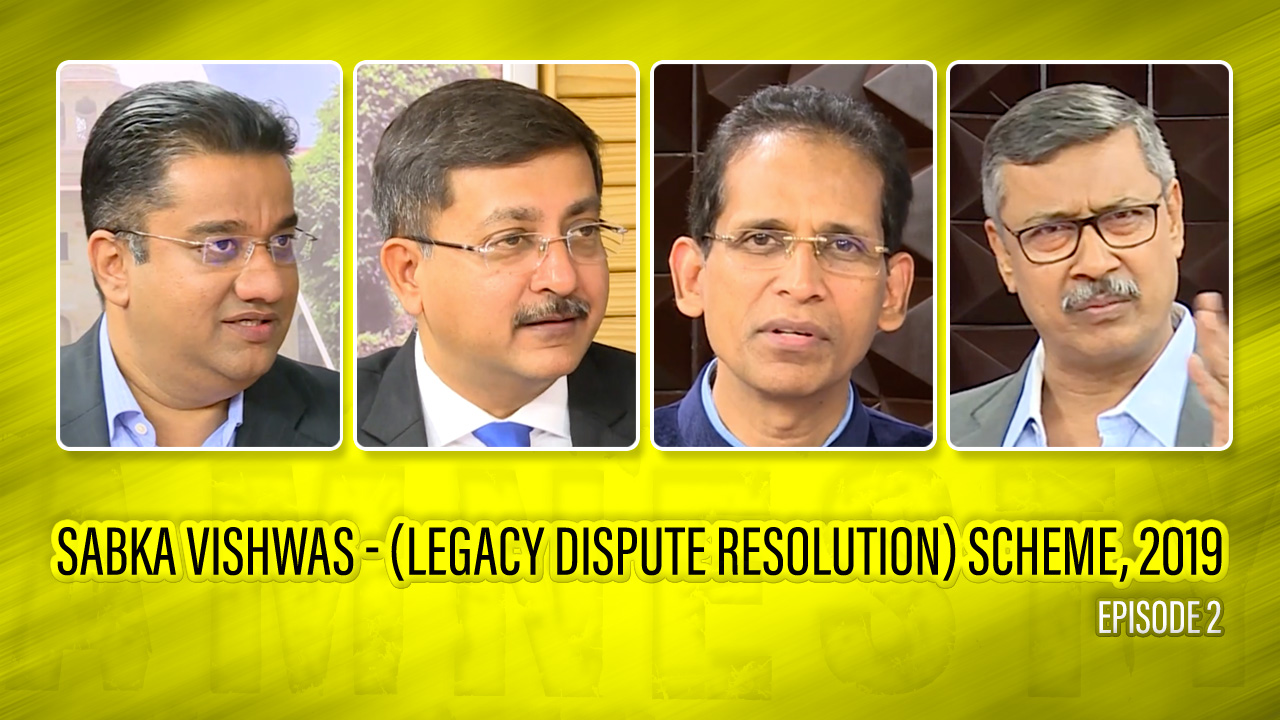

 By Shailendra Kumar
By Shailendra Kumar 